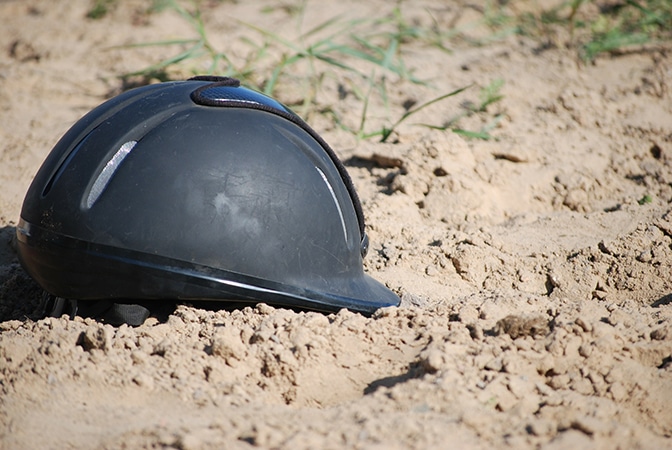Should helmets in sport be compulsory?

Modern sporting organisations always endeavour to protect their athletes and countless improvements to safety have emerged over the years. Few however can be said to have had a greater benefit to both professionals and amateurs, than the protective helmet.
It’s easy to forget however, that its widespread adoption is often resisted, even actively blocked by some within the sport. For example, the organisation responsible for professional road cycling fought for over a decade to ensure the mandatory use of helmets in professional cycling events. This was resisted until eventually, opinion shifted after the death of Andrei Kivilev during the Paris-Nice race. The compulsory use of helmets was subsequently enforced; this was however as late as 2003, well within what would be considered the modern age of global sport.
Now it's important to recognise that not every sport requires the use of protective head gear. But on the other hand, even today some Olympic sports that do pose a genuine and proven risk of severe head and brain injuries still do not impose the mandatory use of helmets.
Leading the way
Equestrian Charlotte Dujardin, who is a member of the British dressage team and is currently the most successful British dressage rider in the history of the sport, is one of the few Olympian dressage riders who chooses to wear a protective helmet during competitions.
In 2009 Charlotte fell when riding and suffered a fractured skull. She now always wears a protective helmet instead of the customary top hat when competing and was the first dressage rider to win a gold medal wearing a helmet. Charlotte once said “I feel unsafe without my helmet on.”
Charlotte feels very lucky that she was able to walk away from her head injury without any long lasting effects. However, it could have been much worse.
More elite dressage riders are now wearing helmets, although the majority still wear a top hat, which has no straps and can easily be displaced in a fall. Other members of the British team still wear the top hat and in an interview one of them once said “I feel it looks wrong (to wear a helmet)....it’s vanity really......”
The evidence
Some studies have found that head injuries are associated with approximately 60% of all equestrian deaths and around 18% of equestrian injuries. Sadly not all equestrians wear a helmet every time they ride.
If you are lucky enough to survive a head injury whilst riding, you may still suffer with life long effects. Some of the symptoms associated with head injury can include:-
- Physical problems - how the body works
- Cognitive problems - how a person thinks, learns and remembers
- Emotional problems - affecting how a person feels
- Behavioural problems - affecting how a person acts
Even minor head injuries can include concussion (which can lead to headaches, dizziness, fatigue, depression, irritability and memory problems). Whilst in a minor head injury case these symptoms can resolve within a couple of weeks, this is not always the case and can sometimes persist for months or even years.
Severe Brain Injuries can lead to personality changes, language loss (having problems making sense of what is being said or what you want to say), impairment to visual perception, reduced initiative and motivation, reduced concentration, problems with information processing, impaired reasoning, impaired insight or empathy.
Long term head injury sufferers may find it difficult to maintain relationships and work in their previous capacity, if at all. As experts in personal injury cases involving brain injuries, we know all too well the life altering impacts caused by head injuries.
These are just some of the risks that may be prevented from wearing a safe helmet when participating in certain sports.
The future
Charlotte wears a riding hat by Charles Owen. There are many hats on the market but it is important to purchase one which meets ASTM standards and is SEI certified.
More and more riders in the international dressage teams are taking a leaf out of Charlotte Dujardin’s book and turning to crash helmets in the competition arena. But whatever sport you enjoy, if it is one that poses a risk of a head or a brain injury, you need to seriously consider whether the risk of not wearing a helmet can be justified.
Hopefully, more people will see Charlotte as a role model and want to follow suit.
Read more: 5 Famous people who suffered brain injury